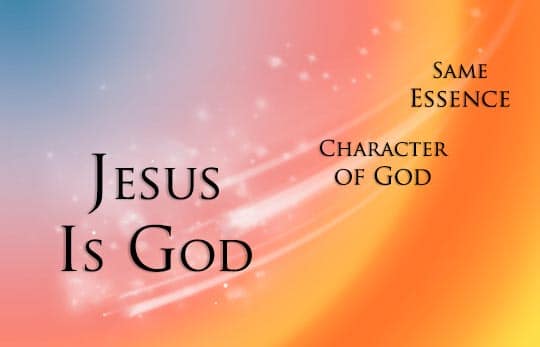“And we believe in the Holy Spirit,
the Lord, the giver of life.”
- Nicene Creed (325 A.D.)
“Now this is the catholic faith:
That we worship one God in trinity and the trinity in unity,
neither blending their persons nor dividing their essence.
For the person of the Father is a distinct person,
the person of the Son is another,
and that of the Holy Spirit still another.
But the divinity of the Father, Son, and Holy Spirit is one,
their glory equal, their majesty coeternal….
Thus the Father is God,
the Son is God,
the Holy Spirit is God.
Yet there are not three gods;
there is but one God.”
– Athanasian Creed (Fifth Century A.D.)
During his earthly ministry, Jesus told his disciples that a Comforter, Counselor, and Guide would be given to them when he departed (John 14:15-21, 16:4-15). After his resurrection, right before he ascended Jesus said the disciples should wait until they received power (Acts 1:8). However, it is not until the day of Pentecost that understanding, and power came to the disciples in the Person of the Holy Spirit:
Acts 2:1–4
[1] When the day of Pentecost arrived, they were all together in one place. [2] And suddenly there came from heaven a sound like a mighty rushing wind, and it filled the entire house where they were sitting. [3] And divided tongues as of fire appeared to them and rested on each one of them. [4] And they were all filled with the Holy Spirit and began to speak in other tongues as the Spirit gave them utterance. (ESV)
The Christian faith is a unique in its claim to believe in one God (monotheism) who is revealed in three persons (Trinity). Understanding the Trinity is difficult to comprehend with our finite minds, and yet it is this revelation of the nature of God that reminds us that our God is Other, mysterious, and glorious. Throughout church history, much has been said, preached, and written about the Father and the Son, but, in some circles, the Holy Spirit is often overlooked or misunderstood. Even in the development of the Creeds, the earliest creeds mention the Holy Spirit’s existence, but not his divinity. This is why the Nicene Creed develops the understanding that the Holy Spirit is Lord.
There is much to learn about and seek to understand about the Holy Spirit and his ministry to us. Next week we will look into the relationship the Holy Spirit has with the Father and the Son, this week we are looking at who the Holy Spirit is and his interactions with us. Jesus said, “it is to your advantage that I go away, for if I do not go away, the Helper will not come to you. But if I go, I will send him to you” (John 16:7). Have you ever just thought, “this would be a whole lot better if Jesus was standing right here?” I have. Wouldn’t it be easier to pray if you could see Jesus? Wouldn’t it be easier to trust if he could hold your hand as you walked through difficulties? Wouldn’t be easier to feel forgiven and loved if he were present to embrace you in a secure hug?
So how could it be to our advantage that Jesus leaves? It is so that the Holy Spirit could come and indwell believers. I can’t say that I fully understand the economies of God and adequately articulate his movements. The Trinity has existed from before time began, but it is only through the progressive revelation of God that we learn of each person and their individual work. In the Old Testament, we see the Father as the primary focus of God’s interaction with his people. In the Gospels, we see Jesus, the Son of God, as the primary person fulfilling the redemptive plan. After the ascension of Jesus, the Church age commenced, and the Holy Spirit becomes the primary agent of the Trinity working directly in and through God’s people.
The Holy Spirit is God. He is actively working in the Church. And if you believe in Jesus Christ as your Savior, the Holy Spirit is actively working in you. The Holy Spirit convicts us of sins, reveals to us our need of a savior, opens our eyes to who Jesus is, and secures our salvation. The Holy Spirit helps us pray and prays for us. The Holy Spirit gives ever believer a gift to be used for God’s glory and the benefit of the body of Christ. The Holy Spirit emboldens us to carry the message of the Gospel to others. The Holy Spirit empowers us to say no to sin and yes to godliness. The Holy Spirit is God and he indwells believers, so he is “Other” and he is near.
Read more: Gen. 1:2; Ex. 40:38; Num. 11:16-25; Matt. 3:16; Acts 2:1-4; John 4:23-24; 1 Cor. 6:19-20; Rom. 8:9-11; Rom. 8:26-27; John 16:7–15; Acts 1:8



